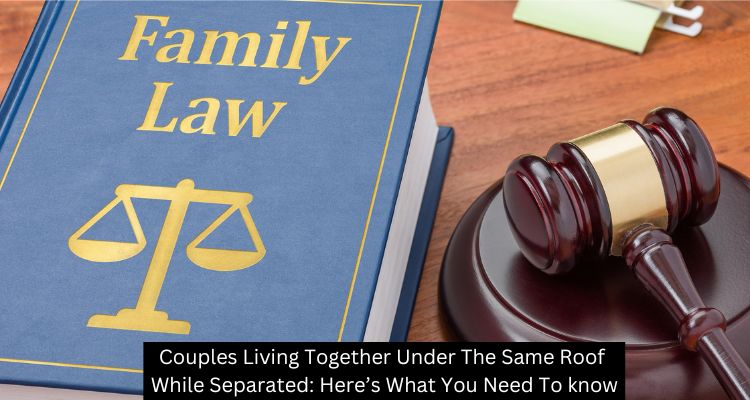
A very common misperception with regard to separation and divorce is that marriage only ends when the partners start living separately and apart. But is that really so? Does moving out of your partner’s house the only criteria for being considered separate?
This blog post will enlighten on the question whether couples are considered separated or not if they are living in the same house.
Can A Couple Be Considered Separated If They Are Living In The Same House?
Well, the answer to this question is – Yes, you can be considered separate from your partner despite both of you are living under the same roof.
When it comes to separated couples living in the same house, the rules are different for validly married couples and common-law spouses. If you are formally married to your partner, then you have the right to stay in the house. On the flip side, if the individuals are common-law couple, they are not entitled to the equal right to continue living in their spouse’s house at the end of their relationship.
Couples who are separated but living in the same house are obligated to prove that no conjugal relationship exists between them and that they are living under the same roof due to financial technicalities.
Considerable Factors In Determining The Cases Of Couples Living Together While Separated
In cases where couples are living under the same roof while being separated, an extra layer of complexity is added when it comes to divorce proceedings. It is pertinent to note that there are no fixed factors that courts consider to decide on the matter of separation while living in the same house. However, the focus of courts in deciding such matters is more on spouses’ behavior and the boundaries between them. Following is the non-exhaustive list of factors that are taken into account:
- Sleeping separately or not
- Social presence of a couple at events, parties, etc.
- Their behavior and visitation schedules with each other’s families
- Management/Distribution of household chores
- Planning or investing something together
- Travelling together
- The notion that is portrayed to their friends and family about their relationship
- Depending on your spouse’s income
- Making public pretenses that couples usually do
- Managing tax filing together, etc.
For married couples, once they have decided to live apart but under the same roof they file for a joint divorce application. In other words, you can file for a divorce while living in the same house by proving that you and your spouse are financially and physically separate.
But, What About The Tax Implications If You Both Are Living In The Same House?
If truth be told, tax implications can be turbulent in cases where couples are living together yet being separated. Oftentimes, when couples are sharing financial and parental burdens despite being separated, then they are still considered a couple in the eyes of the Canada Revenue Agency (CRA). Changing your marital status does not necessarily stop your tax benefits entitlements if there are any depending on an individual case.
As observed in R v Aukstinaitis, the petitioner who was living separately but under the same roof claimed that she was entitled to tax return credits. She demonstrated that both partners were financially independent and were sharing the burden of financial and parental duties. Considering that she was also providing housing to her ex-husband, the court allowed the petitioner’s appeal.
Contact The Lawyers At Ayaz Mehdi Professional Corporation
Separation or divorce can be tough on couples. It is always advisable to keep a divorce lawyer in the loop for a smooth and effective divorce process. Attorneys at Ayaz Mehdi Professional Corporation are available on staff to help you navigate any family law matter.
Disclaimer: Kindly note that sending or receiving information through this site does not establish a solicitor-client relationship. Legal matters are fact-specific, and the law is variably changing. The views expressed and the content provided on this blog are general guidelines and cannot substitute for proper legal advice. Schedule your legal consultation by clicking here: Let’s meet!






